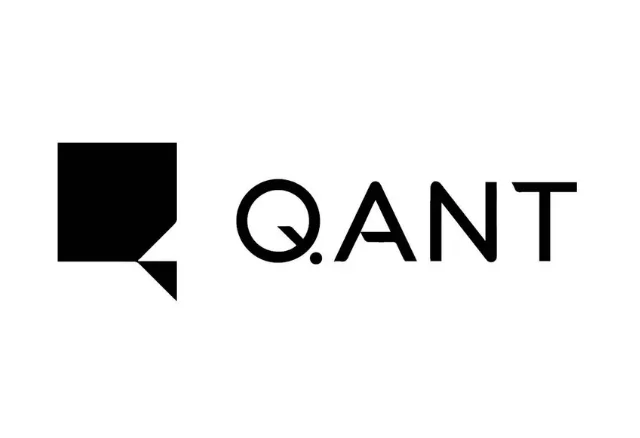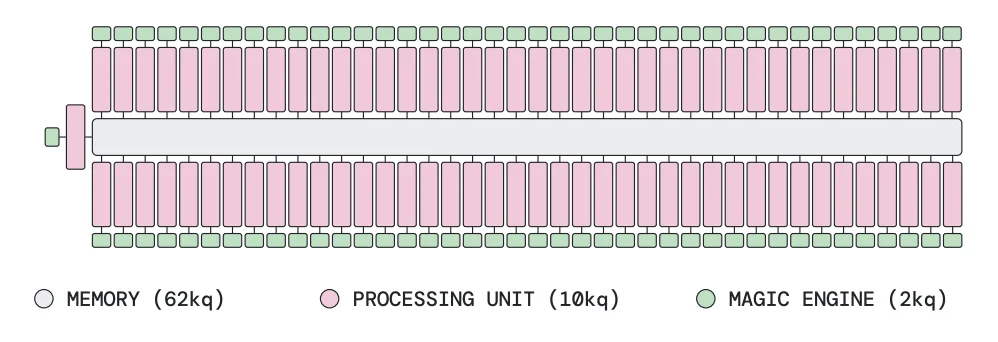Applied Quantum Computing in Chicago
A chat about startups, skills and education with Pranav Gokhale, CEO of Chicago Quantum startup Super.tech



Pranav Gohkale
—
What is the focus of the company and when did it start?
Super.tech is developing software that bridges the gap from near-term quantum computers to practical applications. Our ambition is to become quantum’s one-stop shop—both for professionals aiming to extract business value from quantum and for quantum hardware engineers aiming to optimize their systems. Super.tech was spun out of my PhD research with Professor Fred Chong at UChicago last year, and we’re now embedded in federal research through our incubation by Argonne National Lab’s CRI program. Our software development approach is unique in that it unites aspects of quantum computer science and quantum physics that are separated in traditional computing stacks.
What kind of expertise did the founders have?
I graduated from UChicago last year with a PhD in quantum computer architecture. My PhD research led to over a dozen publications, three best paper awards, and two patent filings—all of which are key components of Super.tech’s software vision. I’m also lucky enough to co-found Super.tech with former PhD advisor, Professor Fred Chong. Fred, who is now Super.tech’s Chief Scientist, has been a leader in quantum computing since 2001 and he is the lead Principal Investigator for EPiQC, which is the NSF’s largest investment in quantum computer science.
What kind of opportunities do you see for startups in the quantum space? Consultancies, software platforms?
Startups have a unique zero-to-one role to play in deciding what to actually do with a quantum computer and how to run those applications. One good example of this is Xanadu, a Canadian quantum startup whose PennyLane library has practically created the software layer for quantum machine learning from scratch. In addition to these sweeping industry-defining opportunities, I also envision sector-specific opportunities, similar to how AI/ML startups have found success through specialization. In that spirit for example, Super.tech has developed our software with a particular focus on finance and energy customers. A number of other quantum startups have found their own niches in areas like insurance or pharmaceuticals.
Are there any other Quantum startups in Chicago?
I don’t know of any other quantum startups yet. There is a push from UChicago and other organizations to see more quantum entrepreneurship, but as far as I know we’re the only one so far. However, there are two non-startup quantum organizations in Chicago that have been phenomenal: Chicago Quantum Exchange (Univ of Chicago, Argonne, Northwestern, etc.) and P33. They’re doing a great job of bringing quantum to the forefront of Illinois/Chicago’s research agenda.

Source: https://quantum.uchicago.edu/about/

Do you view “applied quantum” as being a here and now thing or off 5-10 years in the future?
While applied quantum has already arrived for some applications like encryption and certified RNGs, the truly transformative applications are still a few years out. Our mission at Super.tech is to accelerate that event horizon by 5+ years sooner than the current trajectory would allow. We find that leaders at forward-thinking organizations are rightfully investing in developing their quantum-ready workforce and IP today, rather than getting caught backfooted when the transformational applications arrive. In that sense, the preparation for applied quantum is already here today.
How important do you think it is for business professionals and business students to understand the impact of quantum computing?
A telling sign is the emergence of data analytics and ML as a central part of business school curriculums. In the same spirit, I anticipate the quantum will become a “vocational” aspect of business school curriculums during the next decade. For now though, I would recommend that business professionals familiarize themselves with quantum at a non-technical level: examining which applications will and will not be affected, understanding quantum in relation to cybersecurity, and subscribing to industry reports to follow trends and timelines.
Do you think that quantum may follow a similar approach to AI, where assistive platforms and consultancies are developed that give non-PhD’s the ability to participate in utilizing the capability?
Absolutely. While there is an important push to train a quantum workforce, there should be just as great a push for platforms that enable people without a quantum training to leverage speedups from quantum computers. In fact, this is a key aspect of the software we’re developing at Super.tech! We draw a lot of inspiration from how AI/ML products are in routine use by non-technical folks in fields like farming or real estate.
On a related note, do you think it may be realistic for people to use quantum algorithms without necessarily being able to design the algorithms? For example, using libraries from a common language like Python?
We do envision that professionals will be able to simply call quantum algorithms from Python libraries, without necessarily needing to understand their inner workings. The one caveat I’ll add is that there can be tension between making an algorithm easy to use and making it as efficient as possible. One day when quantum computers have millions of qubits, the efficiency loss won’t matter so much. But given the qubit-resource constraints of the next fifteen years, I expect that end users will need to collaborate with quantum experts and algorithm designers to maximize achieved quantum performance.
Do you think the business world may come to see quantum computing and quantum algorithms largely as a tool to add greater processing power to existing tools such as machine learning and data science? Or do you think that it may be the reverse, as some say that classical computing is really a subset of quantum, and perhaps to where “quantum thinking” vs “classical thinking” may result in the need for people to think in fundamentally different ways, so that business applications may be fairly distinct relative to AI?
Most of the foreseen applications of quantum computing will be fairly additive and integrative with existing data science tools. For example, Super.tech is working on enhancing coresets (a tool from traditional machine learning) with quantum approaches to solve large machine learning problems with small quantum computers: https://arxiv.org/abs/2004.14970. This work, as well as most of the other quantum algorithms that have been invented so far, treat quantum thinking as an “add-on” to classical thinking.
Have there been any books or resources that you have seen to be helpful for either learning quantum computing, or learning about how it works?
While I learned quantum computing the “old school” way through textbooks, I’m impressed by the volume of high-quality tutorials and lectures on Youtube. If I were a new learner of quantum computing today, I’d opt for following any one of the many excellent online video series. I’ll also put in a strong endorsement for a new book, Quantum Computer Systems, written by Fred Chong (Super.tech Co-founder) and Yongshan Ding. The book is targeted at folks who are already well-versed in classical computing, but are looking to transfer their knowledge to the quantum realm.

If most of the material so far has come from science researchers, in physics or computer science, do you see any value in seeking non-science involvement to help develop material to translate the concepts?
We do see involvement from non-scientists playing an important role in distilling the important bits of quantum computing down to the end user or to the public. My own career in quantum science began when I read a science outreach piece about quantum cryptography from NIST in 2007—which led me to intern at the lab. So this is something that is of personal importance to me. To this end, we (Super.tech) are planning on working extensively this year to develop educational materials to translate quantum concepts to a wider audience.
How important is it for business students/professors/professionals to understand the impact of quantum computing, and what do you think are the main areas to understand? Speed, cybersecurity impact, previously unsolvable problems?
Longer term, the biggest impact of quantum computing will be in addressing previously unsolvable problems like (a) modeling of molecular systems and (b) breaking RSA encryption. Thinking through the business consequences of these two developments would be a valuable exercise for any business student. Second, I’d recommend that business students and professionals become familiar with the more near-term prospects of quantum computing in industries like finance. For example, what would it mean if quantum computers could lead to 1% gains in portfolio optimization return. On one hand, a 1% gain is small, but on the other hand the multiplier is so large in an industry like finance.
What would be your advice to working professionals or students in relation to quantum computing and quantum applications? How high should it be on their radar?
A helpful bellwether is the US government’s prioritization of quantum computing in education and research funding. Right now, that prioritization puts quantum at an extremely high position, though not quite as high as AI/ML. I agree with that assessment. The implication for working professionals and students is that quantum will certainly be important in the grand scheme of business activities and societal impact. While data and machine learning training is more immediately applicable, having exposure to quantum is good for future-proofing one’s skillset.
In order for professionals, students, or people with a science background to learn quantum, do you think it makes sense to get a grounding in data and machine learning first, and learn quantum computing in parallel, or to learn it separately?
I’d typically advocate for beginning with a data and machine learning foundation, because the linear algebra concepts one picks up in Data/ML 101 courses (eigenvectors, orthogonality, bases, etc.) are critical for learning quantum computing. Already having a background in these concepts will certainly pay off when taking a Quantum 101 course.
If you found this article to be informative, you can explore more current quantum news here, exclusives, interviews, and podcasts.














